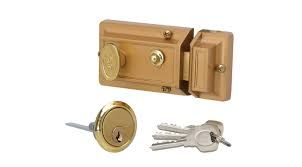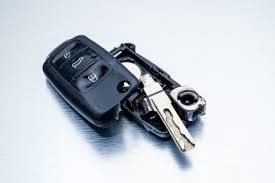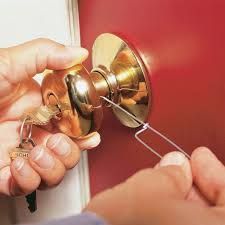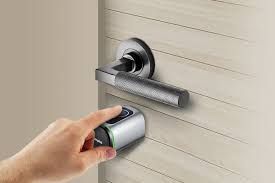Should I Purchase a Car Key Online?
Losing or needing a replacement for your car key is no joke—it’s frustrating, inconvenient, and sometimes downright expensive. So, the idea of buying a car key online might seem like a tempting shortcut. But hold up! Before you hit “Buy Now,” let’s talk about the risks, costs, and better options so you don’t end up regretting it.
How to get a car key made without the original
Red Flags to Watch for When Buying a Car Key Online
Sure, online shopping is convenient, but when it comes to car keys, it’s a slippery slope. Here are some red flags that should stop you in your tracks:
- Suspiciously Low Prices: If it’s too good to be true, it probably is. Super cheap keys may not work or might be counterfeit.
- No Return Policy: A reputable seller stands behind their product. No returns? That’s a red flag.
- Vague Product Descriptions: If the seller isn’t clear about compatibility with your car’s make, model, or year, steer clear.
- No Contact Information: A legitimate vendor will have clear, accessible customer support.
- Poor Reviews or No Reviews at All: Check what others have to say. A shady seller won't have glowing reviews, or worse, none at all.
Why your car key isn't working
Cost Considerations
While buying online might seem like a money-saver at first, remember that the upfront price isn’t the whole story. A generic key from an online seller might cost $50 to $100, but programming it—or realizing it doesn’t work—can add up quickly. By the time you’ve dealt with potential hidden costs (like reprogramming fees or returns), you might spend as much as, or more than, going through a locksmith or dealership.
On the other hand, a locksmith or dealership might quote you $150 to $300 for a fully programmed, guaranteed-to-work key. It’s pricier upfront, but you’re paying for reliability and peace of mind.
Is It Safe to Purchase a Car Key Online?
Not always. Buying a car key online can be a gamble. Counterfeit keys or poorly made duplicates often lack the programming chips required for modern car security systems. That means your car might not recognize the key, or worse, you could expose yourself to hacking risks. Without proper encryption, online-purchased keys may also leave your vehicle vulnerable to theft.
When it comes to something as critical as your car’s security, safety should come first.
What can a locksmith duplicate for you
Why a Locksmith Is the Secure Option
A locksmith doesn’t just sell you a key—they sell you a guarantee. With their expertise, they can ensure the key is programmed to your car’s exact specifications, giving you a perfectly functional key without the trial-and-error headache of online purchases.
And let’s be real: trusting someone local and accessible beats dealing with an anonymous online vendor who might vanish the second something goes wrong. Locksmiths are the pros for a reason—they’ve got the tools, training, and customer service to back it up.
When Can I Safely Purchase a Car Key Online?
Not all online car key purchases are doomed. Here’s when it’s okay to go ahead:
- The seller is a verified retailer with strong reviews.
- They offer a return policy or money-back guarantee.
- The key clearly specifies compatibility with your car.
- The vendor provides customer support to answer your questions.
- You’re buying a non-transponder or basic key (older models only).
What We Recommend
If your priority is peace of mind, go with a locksmith. Period. The upfront cost is worth avoiding the headache of buying a key that doesn’t work or leaves you stranded. But if you’re set on buying online, do your homework: check the seller, read the reviews, and understand the risks.
When it comes to your car, don’t cut corners—invest in the best solution to keep yourself on the road and your vehicle secure.
Conclusion
When it comes to replacing your car key, taking shortcuts can cost you more in the long run. While buying online might seem convenient, the risks of counterfeit products, incompatibility, and added costs make it a gamble. Opting for a professional locksmith ensures security, reliability, and a hassle-free experience. Ultimately, your car’s security and functionality are worth the investment in expert solutions.
FAQs
- Can I program a car key I bought online?
Yes, but only if it’s compatible with your car’s make and model. However, you’ll likely need a professional locksmith or dealership for programming. - Are online car keys always fake?
Not always, but many are counterfeit or poorly made. Research the seller before purchasing. - Why are locksmiths more expensive than buying online?
Locksmiths provide guaranteed service, custom programming, and professional-grade products, which ensure safety and functionality. - Can I buy a spare key online just for emergencies?
Yes, but ensure it’s compatible and tested before relying on it. - Do locksmiths offer warranties on keys?
Most professional locksmiths provide warranties, ensuring a functional and secure key. - How much does a locksmith charge for car key replacement?
Depending on the car type and key complexity, it can range from $150 to $300. - Is buying a key online illegal?
No, but purchasing counterfeit or unlicensed keys could lead to legal and security issues. - Can online keys damage my car?
Poorly programmed keys can cause electronic system errors or lockouts. - What’s the best way to find a reliable locksmith?
Look for local locksmiths with strong reviews, certifications, and a transparent pricing policy. - Should I buy keys for older cars online?
For non-transponder keys, online options might work. Just confirm compatibility and quality before purchase.
Call Us Any Time!








